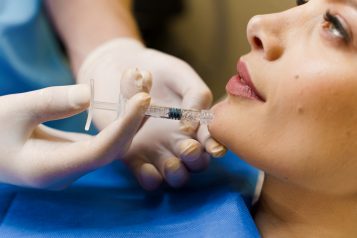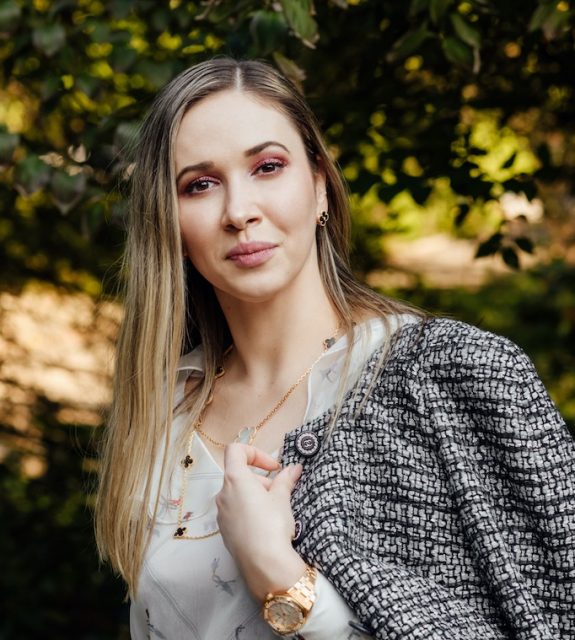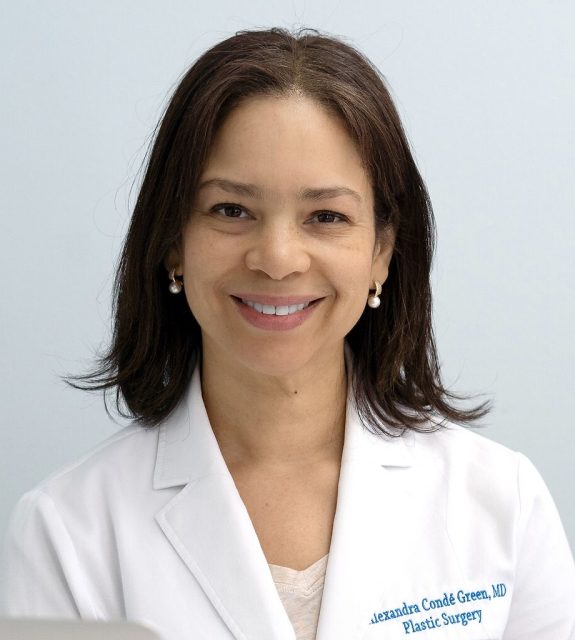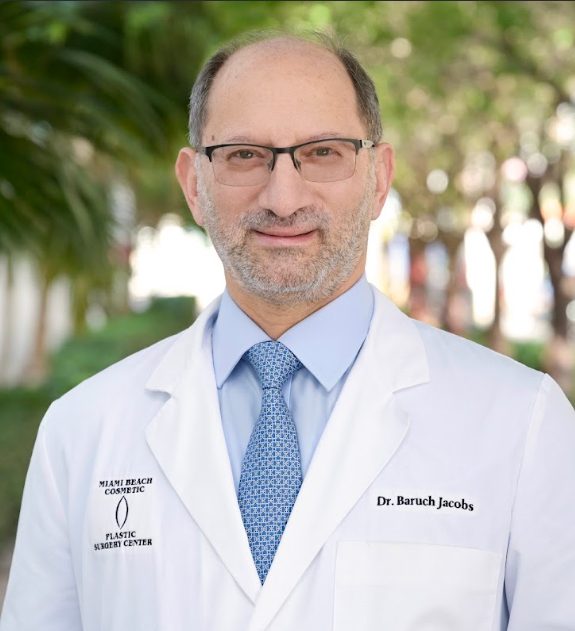Born in London, Dr. Purvisha Patel was raised in Wales (United Kingdom) and Virginia. She completed her undergraduate and medical school studies at the University of Virginia. She completed her dermatology training at The University of Tennessee Health Science Center in Memphis. Dr. Patel is certified by the American Board of Dermatology and is a member of the American Academy of Dermatology and the American Society for Dermatologic Surgery. Dr. Patel’s expertise in skin and skincare is also seen as she formulated and patented the Visha Skincare line when she saw that her products were working on patients of all ages, genders, and skin types. Dr. Patel is also a beauty influencer and her highly published dermatologist publications include Allure, Elle, Vogue, Cosmopolitan, Prevention, Readers Digest, Shape, Women's Health, etc. Haute Beauty expert Dr. Patel explains how blackheads, whiteheads, cystic and hormonal acne are caused and provides prevention and treatment recommendations.
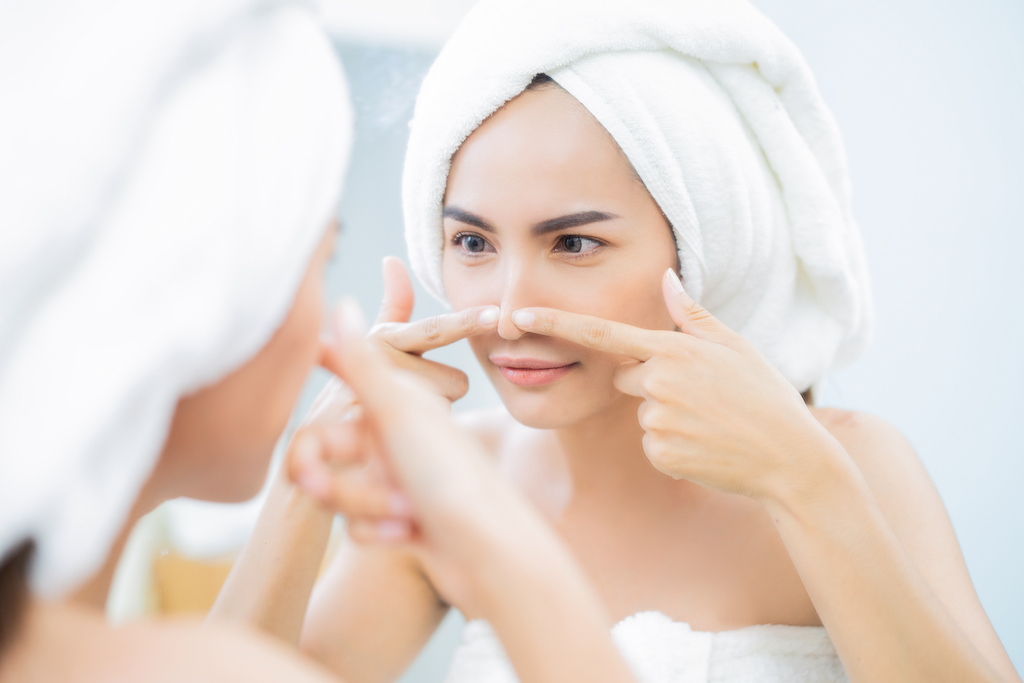 Photo Credit: ShutterstockWhat is the best way to prevent/treat blackheads?
Photo Credit: ShutterstockWhat is the best way to prevent/treat blackheads?
● Dissolving the oil that causes the blackheads is key to preventing blackheads so it is important to wash with a good exfoliating wash such as Visha Skincare Advanced Purifying Cleanser to dissolve the oil and clean the skin. The combination of fruit acids and tea tree oil helps shrink the pores so less oil can accumulate.
● In-office procedures include chemical peels to flatten and shrink pores and laser treatments. Oil is supposed to accumulate in the pores of our skin, however, blackheads happen when the oil is thick and oxidized.
● To treat: Removing the oxidized oil removes the blackhead. This can be done physically with a pore strip for example, or chemically with a product such as an astringent or cleanser that dissolves the oil.
What is the best treatment for whiteheads (if different)?
It’s a manual process and typically done at home with an extractor or by an experienced health professional. The clogged pore is extracted from the oil to decrease acne. It is important to wash with a good exfoliating wash before and after extracting to dissolve the oil and clean the skin. It is important to either get a professional or learn how to use a comedone extractor or there can be more inflammation that can result in scarring.
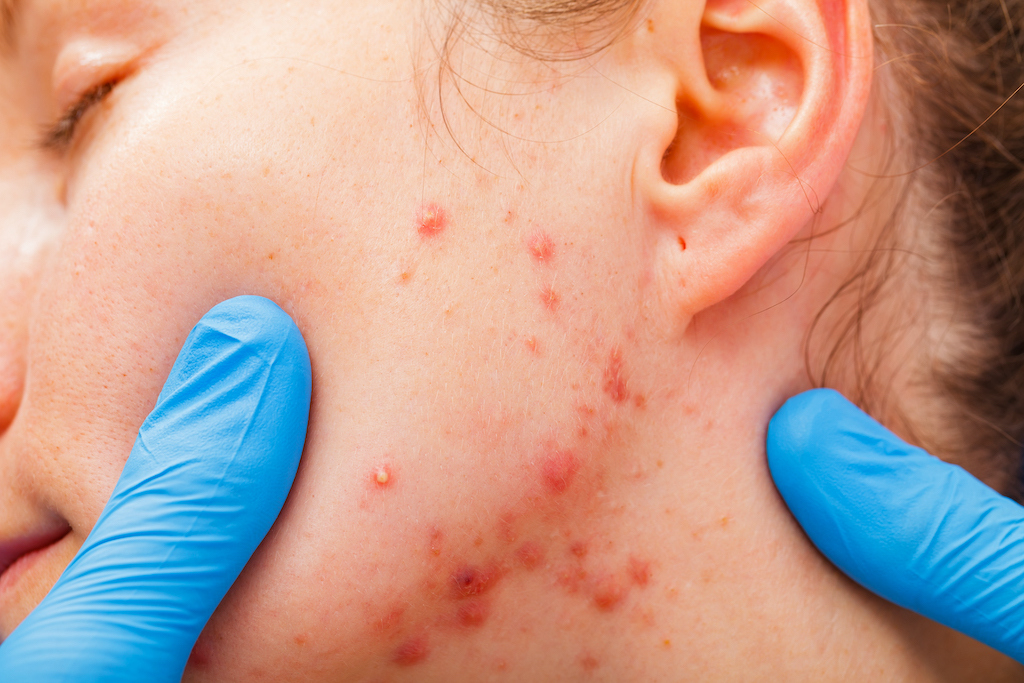 Photo Credit: ShutterstockWhat is cystic acne and how should it be treated?
Photo Credit: ShutterstockWhat is cystic acne and how should it be treated?
● Cystic acne tends to form deeper in the hair follicles and has distribution along the jawline and neck area. There is commonly not a pustule or "head" to the pimple. It is caused by follicular occlusion, bacterial/fungal overgrowth, oil production, inflammation. Cystic acne is commonly increased in the 30s as this is when the skin is most susceptible to hormonal changes. The hormonal shifts affect the oil glands/sebaceous glands in the skin. Each follicle on our body is connected to a hair follicle- and we are mammals, we are covered with hair follicles.
● Using potent exfoliating cleansers such as Visha Skincare Advanced Purifying Cleanser, with fruit acids and tea tree oil, decreases the ability of the pores to clog, decreases oil accumulation, and decreases bacteria, fungus on the skin.
● Spironolactone is a hormonal diuretic that counteracts follicular hormonal changes and results in decreases in oil production. This prevents the deep cysts from forming- this does work best on females.
● Additionally, chemical peels and lasers are helpful for exfoliating the skin and shrinking the oil glands to treat cystic acne. Topical creams with retinol/tretinoin/acids help exfoliate the skin to prevent the cysts from forming.
● An unconventional method to treating acne is looking at what we eat. The skin is the largest organ and immune organ of the body. The gut is the second-largest immune organ of the body. We truly can influence our skin with what we eat. We all need 6 glasses of water, 8 hrs of sleep, a multivitamin, and a probiotic to help with skin health. Those with cystic acne benefit from decreasing dairy and sugar from their diets. Dairy, milk in particular has a high hormone load, as the cows that produce the milk are given hormones to produce milk. Humans are the only mammal on earth that can thrive and grow from another mammal's milk- this hormone slurry found in dairy increases oil production and the ability to produce cystic acne. Sugar is an inflammatory food, as it is direct food for gut microorganisms. Growth of these stimulates the body's immune system and increases inflammation in the skin - this can make cystic acne worse as well. Stopping sugar, dairy, and taking a probiotic can help decrease cystic acne to a certain extent. These lifestyle changes along with conventional medications given by your dermatologist augment the treatment of cystic acne.
Should hormonal acne be treated differently than other types of acne?
Hormonal acne happens when we have a progesterone surge that happens monthly- this hormone increases the oil production of the skin, and this can result in increased breakouts. This hormone is also eluted from IUDs and in some birth control pills. Diagnosing the cause of hormonal acne is important, as there are medications to take by mouth to help with the increased oil production.
What ingredients/products can help with post-acne marks?
● Visha Skincare Advanced Correcting Serum has retinol, vitamin C, vitamin E, ferulic acid, and a natural skin lightener that helps decrease pimples and scaring with one product. Wearing an SPF >30 is important to decrease the exposure of the skin to the already inflamed skin. This decreases the chances of the areas getting dark and more noticeable. Additionally, doctors office procedures that help with scaring include chemical peels, laser procedures, and microneedling.
● Wearing an SPF >30 on a daily basis is the most important step, as the sun can cause hyperpigmentation, and when there is inflammation in the skin (as with acne).







